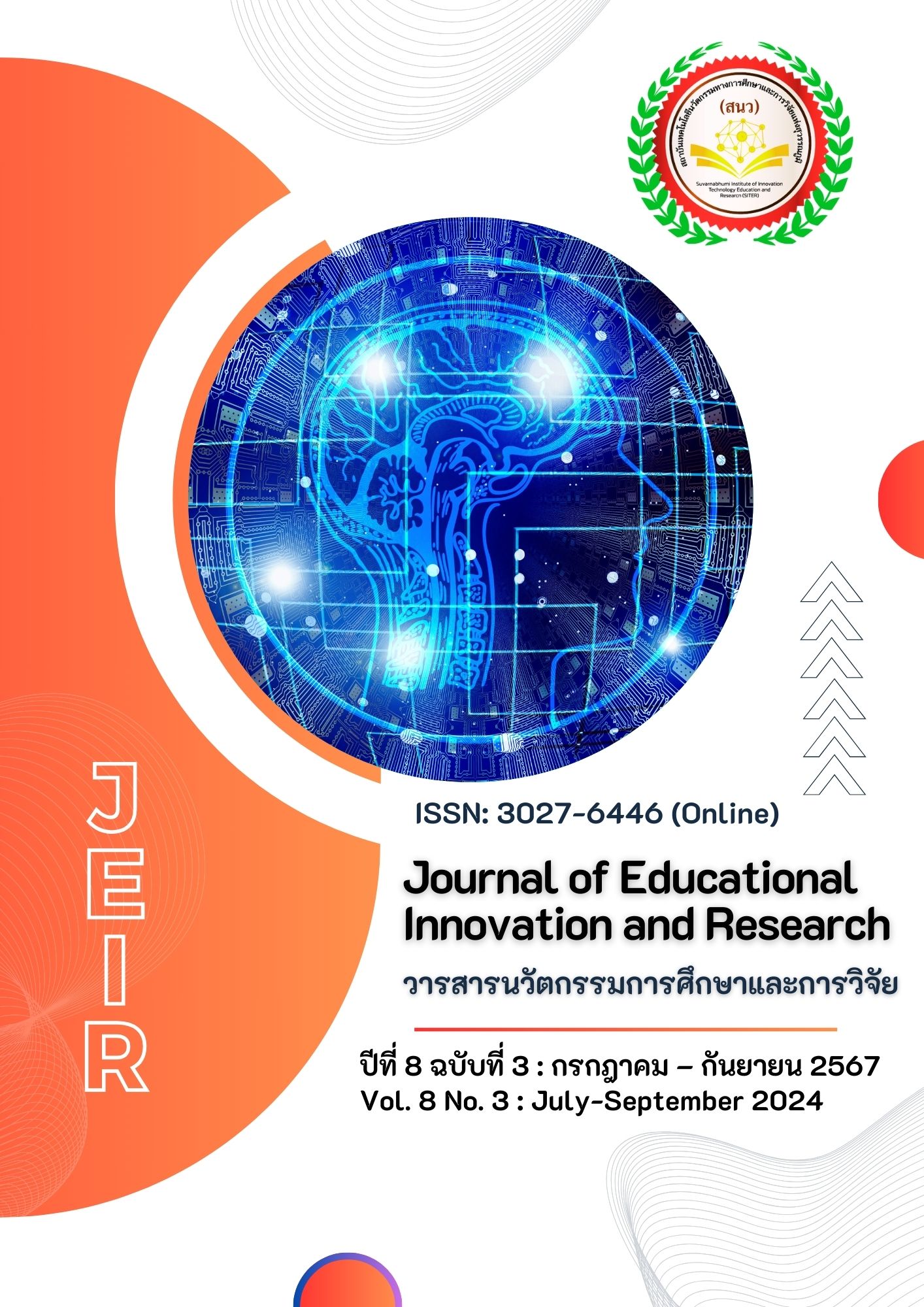Impact of Top Managers’ Transformational Leadership on Employee Job Satisfaction in Zhejiang Province, China
Main Article Content
บทคัดย่อ
The research aims to investigate: 1) the general information of respondents, 2) the impacts of transformational leadership, employees’ psychological capital, and job satisfaction, and 3) psychological capital mediating plays a mediating role between top managers’ transformational leadership and employees’ job satisfaction. In order to achieve this objective. This research was quantitative research, collected data from textile employees in 8 cities of Zhejiang province, China .sample of 423 respondents. They were selected by simple random sampling, the instrument for collecting data was a questionnaire with a content validity (IOC) of .901 and a reliability value of Cronbach’s alpha coefficient of .867. Analysis of data via SEM by AMOS. The research result was found as follow:
Distribution of demographic characteristics of the 423 respondents, the majority were female employees 58.6%, their ages under 25 years old of 37.6%, education level graduate from junior college, of 60.5%, working not more than 1 year of 39.5%, and most of respondent general employees of 65.7%.
1. Transformational leadership directly affects psychological capital and job satisfaction.
2. Psychological capital where self-efficacy, hope, resilience, and optimism play a mediating role between top managers’ transformational leadership and employees’ job satisfaction.
Article Details

อนุญาตภายใต้เงื่อนไข Creative Commons Attribution-NonCommercial-NoDerivatives 4.0 International License.
เอกสารอ้างอิง
Podsakoff, P.M., Mackenzie, S.B., Moorman, R.H., & Fetter, R. (1990). Transformational leader behaviors and their effects on followers’ trust in leader, satisfaction, and organizational citizenship behaviors. The Leadership Quarterly, 1(2), 107-142.
Vandenberghe, C.& Peiro, J.M. (2019). Organizational and individual values: Their main and combined effects on work attitudes and perceptions. European Journal of Work and Organizational Psychology, (8), 569-581.
Li-Chaoping, S. K. (2015). The structure and measurement of transformational leadership in China. Acta Psychologica Sinica, 37 (06), 803.
Burns, J.M. (1978). Leadership. Harper & Row.
Bass, B.M. (1985). Leadership and performance beyond expectations. Collier Macmillan.
Bass, B.M., & Avolio B.J. (1993). Transformational leadership and organizational culture. Public administration quarterly, 112-121.
Adil, M. S., Khan, M.N., Khan, I. and Qureshi, M. A.(2018). Impact of leader creativity expectations on employee creativity: assessing the mediating and moderating role of creative self-efficacy. International Journal of Management Practice, (2), 171-189.
Lei, H., Lathong, L., & Ba, L. P. (2020). How transformational leadership facilitates innovation capability: the mediating role of employees’ psychological capital. Leadership and organization development journal, (4),481-499.
Gom, D. Lew, T. Y., Jiony, M. M., Tanakinjal, G. H., & Sondoh, S. (2021). The Role of Transformational Leadership and Psychological Capital in the Hotel Industry: A Sustainable Approach to Reducing Turnover Intention. Sustainability, (13), 10799.
Le, P. B. (2020). How transformational leadership facilitates radical and incremental innovation: the mediating role of individual psychological capital. Asia-Pacific Journal of Business Administration, (12), 205-222.
Schuckert, M., Kim, T. T., Paek, S. & Lee, G. (2018). Motivate to innovate: How authentic and transformational leaders influence employees’ psychological capital and service innovation behavior. International Journal of Contemporary Hospitality Management, (30), 776-796.
Han, G. H. & Bai, Y. T. (2020). Leaders can facilitate creativity: the moderating roles of leader dialectical thinking and LMX on employee creative self-efficacy and creativity. Journal of Managerial Psychology, (5), 405-417.
Djourova, N.P., Molina, I. R., & Abate, G. (2019). Self-Efficacy and resilience: Mediating mechanisms in the relationship between the transformational leadership dimensions and well-Being. Journal of Leadership & Organizational Studies, (27), 367-343.
Karimi, S., Malek, F. A., Farani, A. Y., & Liobikienė, G. (2023). The role of transformational leadership in developing innovative work behaviors: The mediating role of employees’ psychological capital. Sustainability,15(2),1267.
Zhang, Y. & Yao, Y.H. (2021). Psychological capital and transformational leadership with employee innovation behavior: The moderating effect of work values. Research on Financial and Economic Issues, (07), 138-145.
Wang, Y., Zheng, Y., & Zhu, Y. (2018). How transformational leadership influences employee voice behavior: the roles of psychological capital and organizational identification. Social Behavior and Personality: An International Journal, 46(2), 313-321.
Baig, S. A., Iqbal, S., Abrar, M., Baig, I. A., Amjad, F., Zia-ur-Rehman, M., & Awan, M. U. (2021). Impact of leadership styles on employees’ performance with the moderating role of positive psychological capital. Total Quality Management & Business Excellence, 32 (9-10), 1085-1105.
Andri, G. A., Adawiyah, W. R., & Purnomo, R. (2019). Psychological capital as a mediator between empowering leadership, transformational leadership behavior, and proactive personality and individual job performance. Jurnal Benefita, 4(3), 492-506.
Buil, I., Martnez, E., & Matute, J. (2019). Transformational leadership and employee performance: the role of identification, engagement, and proactive personality. International Journal of Hospitality Management, 77, 64-75.
Ilyas, S., Abid, G., & Ashfaq, F. (2020). Ethical leadership in sustainable organizations: The moderating role of general self-efficacy and the mediating role of organizational trust. Sustainable Production and Consumption, 22, 195-204.
Hassan, S. G., Hameed, W. U., Basheer, M. F., & Ali, J. (2020). Zakat Compliance Intention Among Self-Employed People: Evidence From Punjab, Pakistan. Al-Adwah, 34(2), 80-96.


